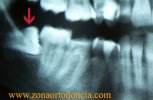pete02
The Living Force
Re: Bruxism (teeth grinding)
Thanks for the input Scarlet, I don't think it will be very helpful in my case either. I think my problem has definitely more to do with this crown my last dentist put in. It just never has sit properly. However by opossum mentioning it it caused me to bring it up in the 'Life w/o Bread' thread (http://cassiopaea.org/forum/index.php/topic,22916.2895.html) and I've come to find out that it's very possible I'm not getting enough calcium after all. So as chance would have it I am going to start upping my calcium intake for the sake of my bones by consuming more veggies and an occasional fruit. Apparently the supplemental version of calcium is not good for us.
Scarlet said:I've been supplementing with 700mg of calcium daily, (which I'm now thinking is way too much), but it doesn't seem to have prevented me from grinding/clenching my teeth at night.Pete said:opossum said:Interesting topic. I just wanted to add that teeth grinding has also been linked to lack of calcium in the diet and is also a symptom of roundworms.
Funny you should bring this up opossum because I was just reading the "life without bread" thread before and saw that Gonzo had pointed out to one of the other members how calcium wasn't on their list of supplements and realized that its not on mine either.I throw a multi vitamin in each day to make up for anything I might be missing but I suppose its possible its not giving me the amount of calcium I need. I'll have to check out the amount on that bottle but I think I'm gonna try and up my calcium for a while and see what happens.
At first the alignment thing seemed to make more sense to me and it still could very possibly be the problem because my dentist did want to replace it last year but my insurance said it had to be in five years before a replacement could be authorized. He never actually told me why he wanted to replace it but if its because my alignment is not sitting properly then the insurance company and I are gonna go toe to toe until they approve it. However in the meantime a little more calcium in my diet can't hurt until I get back to the dentist and if I'm lucky maybe it will help.
Thanks for the input Scarlet, I don't think it will be very helpful in my case either. I think my problem has definitely more to do with this crown my last dentist put in. It just never has sit properly. However by opossum mentioning it it caused me to bring it up in the 'Life w/o Bread' thread (http://cassiopaea.org/forum/index.php/topic,22916.2895.html) and I've come to find out that it's very possible I'm not getting enough calcium after all. So as chance would have it I am going to start upping my calcium intake for the sake of my bones by consuming more veggies and an occasional fruit. Apparently the supplemental version of calcium is not good for us.





 , I was trying to breath but the pain and the movement of my jaw was terrible, the doctor put me "Voltaren" in injection for the pain and it took me the pain away but I would like to know if is good or not ?
, I was trying to breath but the pain and the movement of my jaw was terrible, the doctor put me "Voltaren" in injection for the pain and it took me the pain away but I would like to know if is good or not ?  And I cannot eat nothing right now (solid) so some advice to eat my grease and have a good immune system, by the way , I didn’t want to take antibiotic sincerely I thought I could damage my system taking that !!! So I wonder If it was a good idea or not?
And I cannot eat nothing right now (solid) so some advice to eat my grease and have a good immune system, by the way , I didn’t want to take antibiotic sincerely I thought I could damage my system taking that !!! So I wonder If it was a good idea or not? 

